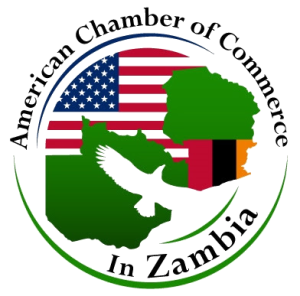In the bustling heart of Zambia’s entrepreneurial scene lies Monica Musonda, a visionary leader at the helm of Java Foods, a pioneering food manufacturing enterprise established to exploit Zambia’s agricultural potential and contribute to the growing demand for nutritious and convenient food.

With a fervent commitment to transforming Zambia’s culinary landscape, Monica’s journey epitomizes the fusion of passion, innovation, and resilience in facing challenges and opportunities.
Zambia finds itself in a precarious position with agricultural productivity hampered by erratic rainfall due to climate change. Small-holder farmers, who account for 73% of the country’s production are under stress with crop failures and anticipated reduced yields from the current farming season. The downstream effect is that every Zambian household will feel the pinch of the impending drought with higher food prices and shortages on the horizon.
Many will turn to cheaper alternatives to cushion their nutritional needs. This is where Java Foods and its flagship brand of eeZee Noodles comes in. From being the first noodle brand in Zambia, the product has cemented its place on many shopping lists and is fast becoming a household staple. Through tenacity, consistency, and discipline, Java Foods has grown to be a leading Zambian manufacturer, employing 100 people and contributing to the country’s food security. Java has also established markets in Malawi and Zimbabwe which will bolster Zambia’s ambition to become a net exporter.
The Genesis of Java Foods
Monica’s journey traces back to her legal expertise, honed through various roles including serving as General Counsel for the Dangote Group. However, her ardor for entrepreneurship and an earnest desire to revolutionize Zambia’s food industry spurred her to establish Java Foods in 2012. The company swiftly carved a niche by producing affordable, nutritious foods, using locally sourced materials, catering to the dynamic tastes of Zambian consumers.
Narrating the origin story, Monica shares, “One thing we realized when we started the business was the large number of imported brands on the shelf although we grew food well in Zambia. Our farmers could grow raw materials such as maize, soya bean, and wheat but these didn’t flow to local packaged alternatives. We also noticed that Zambia has a young population that is eager to try new food options provided they are affordable and accessible which allowed us to explore the business idea.”
Today, Java operates a full production facility of noodles and associated products with 100% local inputs sourced from Zambian farmers. Despite the sustained yields of wheat over the years, Zambia continues to import the majority of its packaged food products. This has left an opportunity for those daring entrepreneurs who are willing to brave the challenges of running a production facility in Zambia in hopes of finding the pot of Gold at the end of the rainbow.
Challenges: Navigating the uneven Zambian business terrain
Running a food manufacturing business in Zambia is not devoid of hurdles. Monica candidly discusses Java Foods’s challenges, ranging from infrastructural limitations to regulatory complexities. In a landscape where logistical bottlenecks and erratic power supply persist, ensuring seamless production and distribution channels remains a perpetual challenge. With poor rainfall in the 2023 to 2024 rainy season, load-shedding is expected to be another challenge for Java Foods to contend with given Zambia’s dependence on hydropower. The dependence on generator power for sustained production will increase production costs further straining the bottom line.
Moreover, navigating bureaucratic procedures and regulatory frameworks necessitates adept maneuvering, adding layers of intricacy to operational processes. Zambia’s taxation system can be complex and burdensome for manufacturers. High corporate taxes, value-added tax (VAT), import duties, and various other levies can increase the cost of doing business and reduce profitability.
Furthermore, manufacturers in Zambia must comply with various and often duplicative regulatory requirements related to health, safety, environmental protection, and quality standards. Ensuring compliance with these regulations can require significant resources and expertise especially since many of these processes are manual.
Java has had to contend with these as Monica shares, “We will have one regulator come in this week and then another the following week both asking for the same thing which requires a lot of executive time and cost to manage. Also, there is a lack of consistency in the approach and application of regulation across the industry. Manufacturers know the regulations we need to follow, we just need the regulators to be coordinated so that companies just deal with one regulator at a time and we need manufacturers to comply.”
Another bigger challenge is access to affordable financing which continues to stunt Zambia’s manufacturing potential. Limited access to credit, high borrowing costs, and stringent lending requirements constrain investment in new technologies, equipment, and expansion projects as they have for Java. Currently, all corporate lending in Zambia has to be secured on fixed assets whose value is a minimum of 1.2x more than the amount being borrowed. This means for every K100,000, a borrower needs K120,000 worth of security. Also, we find Bank tenures too short for capital-intensive projects. It is impossible to finance project expansion with 24-month term loans.
Inflation also continues to hamper the growth of manufacturing in Zambia. Java continues to battle the growing costs of machinery, inputs, and materials amidst liquidity and forex constraints in Zambia.
With limited funding sources available, Java has sustained its growth by relying on shareholder capital in the form of equity and debt. However, more capital will inevitably be required to transcend the current growth rate.

Java’s next frontiers for growth
Amidst the labyrinth of challenges, opportunities beckon for Java Foods. The burgeoning consumer consciousness towards health and nutrition presents a fertile ground for innovation. Java expects to continue growth amidst the challenges given the brand love that has been carefully cultivated for its eeZee brand of products.
Java is conducting marketing studies to expand its product offerings from noodles leveraging the resources, capabilities, and competitive advantage of the business. Furthermore, Java is evaluating local value chains to identify other raw materials that can be sourced and incorporated into new products.
Java is also exploring opportunities to grow outside Zambia after cementing itself as a market leader in Zambia. The low number of noodle manufacturers in Zambia presents an opportunity for Zambia to gain market share in new territories partnering with key partners and relationships with Zambia as the base.
Monica Musonda’s indomitable spirit and unwavering commitment exemplify the essence of entrepreneurship, transcending barriers and catalyzing transformative change. Through the success of Java Foods, she has emerged as a top voice for women in business, epitomizing the quintessence of visionary leadership in Zambia’s entrepreneurial ecosystem that continues to aspire for inclusion.
As Java Foods continues to chart new frontiers in the food industry, its unwavering dedication to quality, affordability, and social impact serves as a beacon of inspiration for entrepreneurs and stakeholders alike, propelling Zambia toward a prosperous and resilient future.
*This article is featured in the Industry Insights section of The Pulse, a publication by the American Chamber of Commerce in Zambia.*
